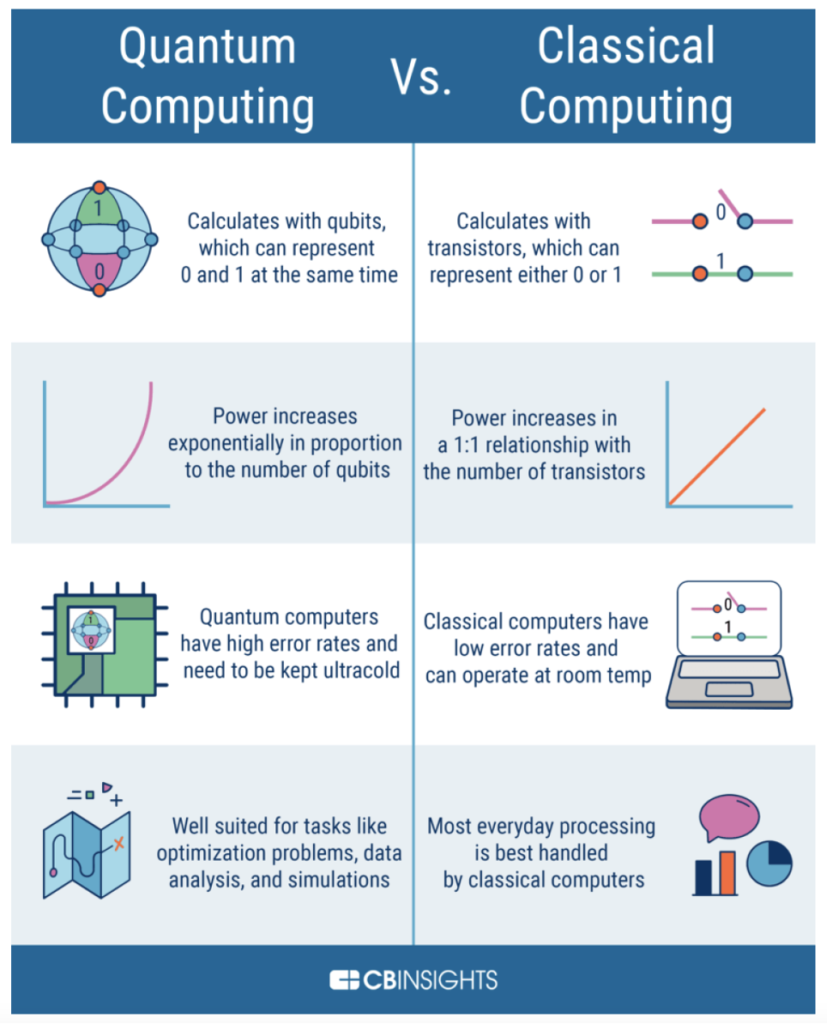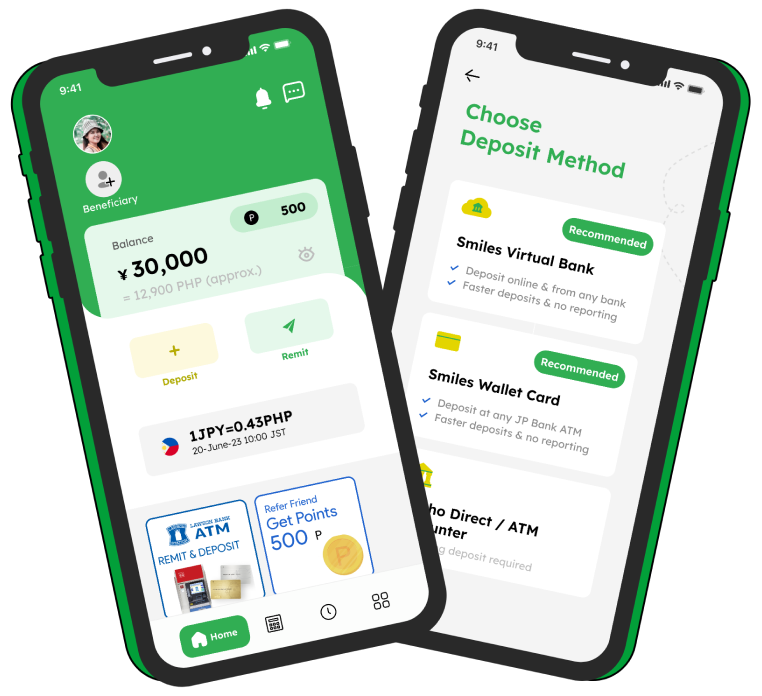
The future of quantum computing
Investment
Table of Contents
What are quantum computing and quantum computers?
Quantum computing is the processing of information that’s represented by special quantum states. By tapping into quantum phenomena like “superposition” and “entanglement,” these machines handle information in a fundamentally different way to “classical” computers like smartphones, laptops, or even today’s most powerful supercomputers. Quantum computers have a variety of shapes and sizes, but only one principle: they contain a quantum processor that allows engineers to isolate quantum particles for manipulation.
Difference between quantum computing and classical computing
The difference between them is bits and quantum bits (qubits). Classical computers are systems based on bits, a unit of information that drives every computation in the device, including laptops, mobile phones, cloud servers.
In a classical computer, each bit may represent and convey information that is utilized to carry out computations by taking on either a value of one or zero in the binary number system. Developers may use bits to create programs, which are collections of instructions that the computer reads and executes.
Classical computers have been important tools for decades, but the inflexibility of bits remains a limitation. There are still many significant issues that traditional technology cannot handle, or take millions of years to solve.
Speaking of quantum computers, quantum bits can be loosely likened to the bits that process information in classical computers. Qubits, on the other hand, have significantly different features than bits since they are formed of quantum particles present in nature. Quantum computers allow quantum particles to exist in several states at the same time, which is called superposition. To simply visualize the operation of superposition, quantum particles are the coin continuously spinning instead of standing still like bits in classical computers.

Benefits of Quantum computing for Businesses
1. Self-Driving or Driverless Cars
Self-driving automobiles are piloted from distance by a person seated in front of a number of displays who can see and hear everything the car’s driver sees and hears. Meaning, someone is in control of the vehicle at all times. Driverless automobiles will still require driver involvement on occasion to ensure the vehicle’s safety. This implies that the person in the driver’s seat must be alert in case they need to act in any way. This technology has been under development for decades and does not rely on artificial intelligence. However, Tesla, Google, and Volkswagen are currently exploiting quantum computers to enhance battery, self-driving technology.
2. Data Analytics
Google recently said that its “Sycamore” quantum computer has achieved quantum supremacy, which can tackle complicated algorithms that no other computer can perform today. As classical binary computing approaches its performance limits, quantum computing is emerging as one of the fastest-growing digital innovations, with the potential to solve the future’s big data concerns.
Though quantum computing is still in its early stages, the United States intends to invest more than $1.2 billion in quantum information over the next decade to develop the world’s greatest quantum technology. Meanwhile, NASA is considering adopting quantum computing to analyze the massive data collected related to the cosmos and develop new and safer means of pace travel.3. Cryptography and Cybersecurity
The main difference between asymmetric versus symmetric cryptography is that asymmetric encryption algorithms make use of two different but related keys. One key encrypts data, and another key decrypts it. Symmetric encryption uses the same key to perform both encryption and decryption functions. (techtarget.com)
Symmetric cryptography is far more efficient than public-key cryptography. As a result, it is utilized to encrypt all communications and data saved.
Quantum technology has the potential to enable much more complex computer simulations, such as those used in aviation. The time and money saved by aiding with aircraft routing and scheduling are significant. Large firms such as Airbus and Lockheed Martin are aggressively researching and investing in this area.
4. Healthcare
Quantum-enhanced machine learning and big data allow physicians to accelerate diagnosis, customize treatment, and optimize pricing by taking advantage of disruptive healthcare use cases.
Today, discovering and bringing a new medication to market may take up to ten years and cost billions of dollars. Quantum computing can significantly reduce costs and time to market with growing access to health-relevant data operated by quantum computing.



























